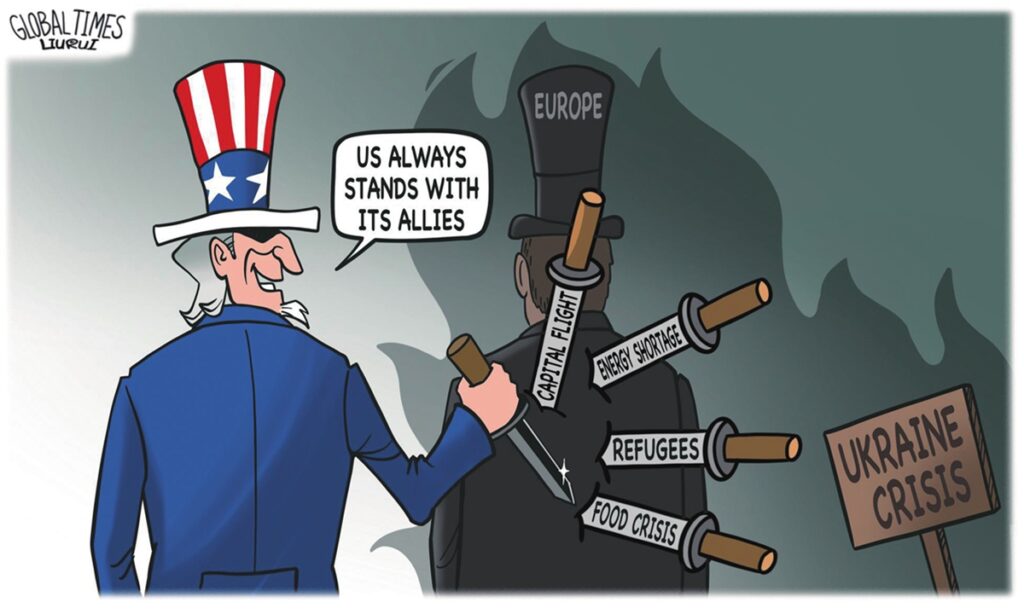A Washington Post report on Wednesday, entitled “European allies worry US could dial back support for Ukraine,” said that US allies in Europe are increasingly concerned that the “united front” of the West against Russia’s military operations in Ukraine could “quickly unravel if Republicans are victorious in next month’s midterm elections.”
According to a poll from Morning Consult released on Monday, only 29 percent of Republican respondents say they think Washington has a responsibility to assist Kiev. House GOP leader Kevin McCarthy warned on October 18 that Republicans will not write a “blank check” for Ukraine if they win back the House majority.
Judging from the current situation, the Democrats will lose the majority of the House of Representatives, Lü Xiang, an expert on international relations at the Chinese Academy of Social Sciences, told the Global Times. Lü said that if the Republicans win a majority in the House of Representatives in the November 8 midterms, there will be an evident adjustment of Washington’s policy toward Ukraine. And after the midterm election, US aid to Ukraine will pare back or be heavily reduced.
The frequent change in US foreign policy is increasingly evident to the international community. The fundamental reason lies in the structural contradictions of the US political system. The two parties represent different interest groups, and each election is essentially a change in the dominant interest group, noted Lü. Such a political system can sometimes work as a correction mechanism. However, with the relative decline of the US, all-round deep-rooted contradictions in fields such as the economy, politics, and cultural identity have been exposed, and it is difficult for the US to devote sufficient resources to support its global hegemony, which makes it difficult for the US to maintain a consistent foreign policy.
Against the backdrop of the ongoing issues, the uncertainty and frequent change in US foreign policy has brought huge policy risks to all European countries, as most of them tend to depend on the US for security. As the Ukraine crisis remarkably impacts the security framework of Europe, it is normal to see European countries express concern over the US’ potential move to reduce its support to Ukraine.
The Ukraine crisis provoked by the US has heavily undermined the European countries, with the eurozone’s inflation rate hitting a record high and the energy crisis getting worse. As winter is just around the corner, many European countries are now worrying about heating. If the US remarkably cuts its aid to Ukraine, Europe will undoubtedly have to bear more.
The US has entrapped its allies or made them suffer heavy losses, especially European ones, many times. The rift between the US and Europe and the US crises of confidence among European countries have already been there. The US-Europe divisions and disputes will become increasingly apparent due to US policy inconsistency.
After the midterm elections, if the US does drastically cuts support to Ukraine, it is believed that the rift will further widen, and the crisis of confidence will further deepen. Europe still needs to maintain independence and autonomy, and cannot rely too much on the US. Heavy reliance on the US in policy means disaster for Europe, and independence will bring the possibility of a benign future for Europe.
(Global Times)




